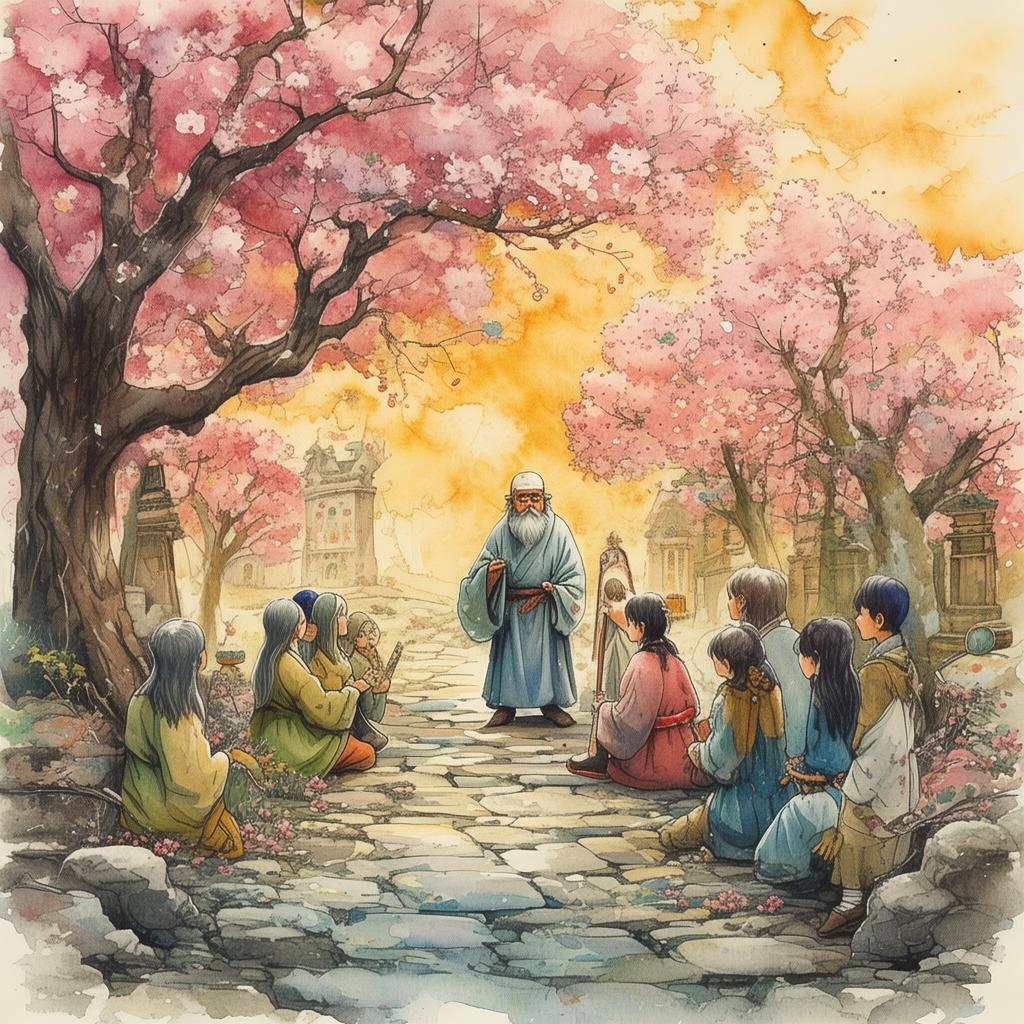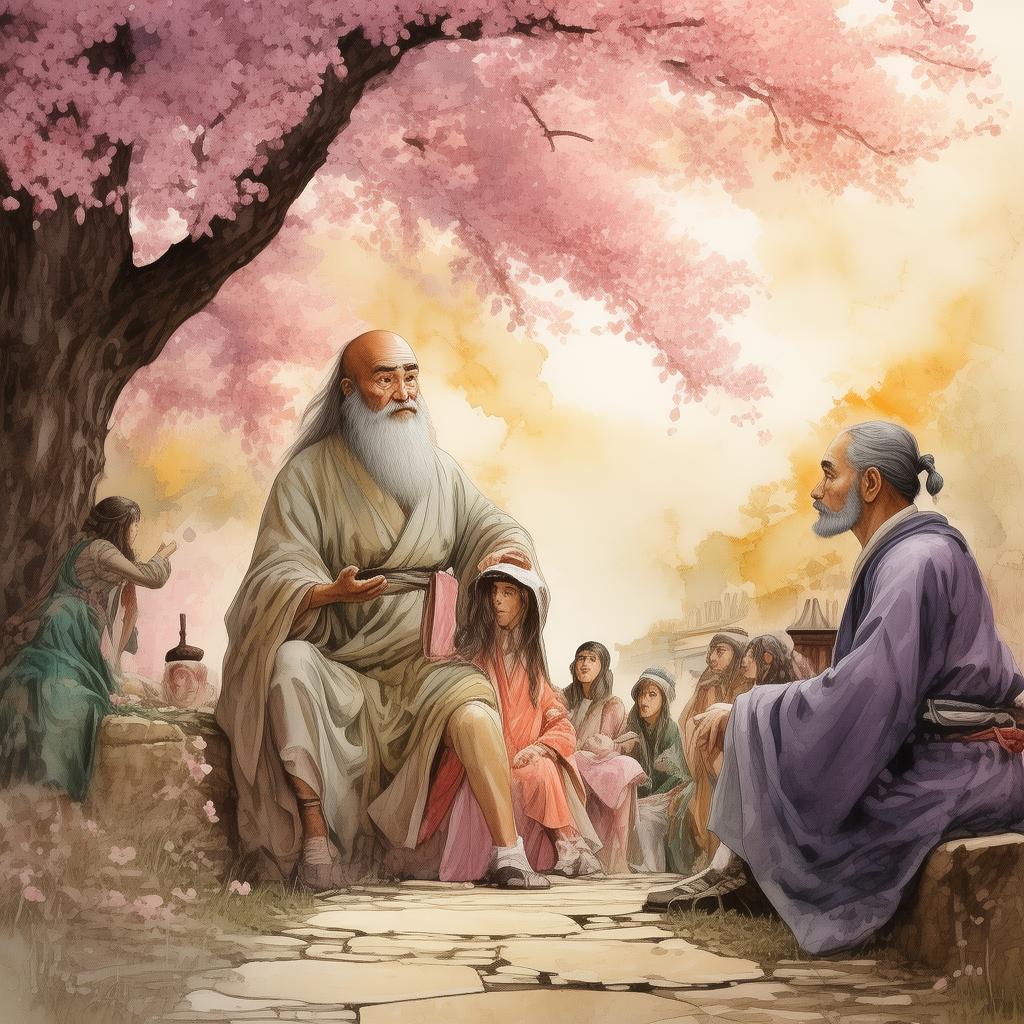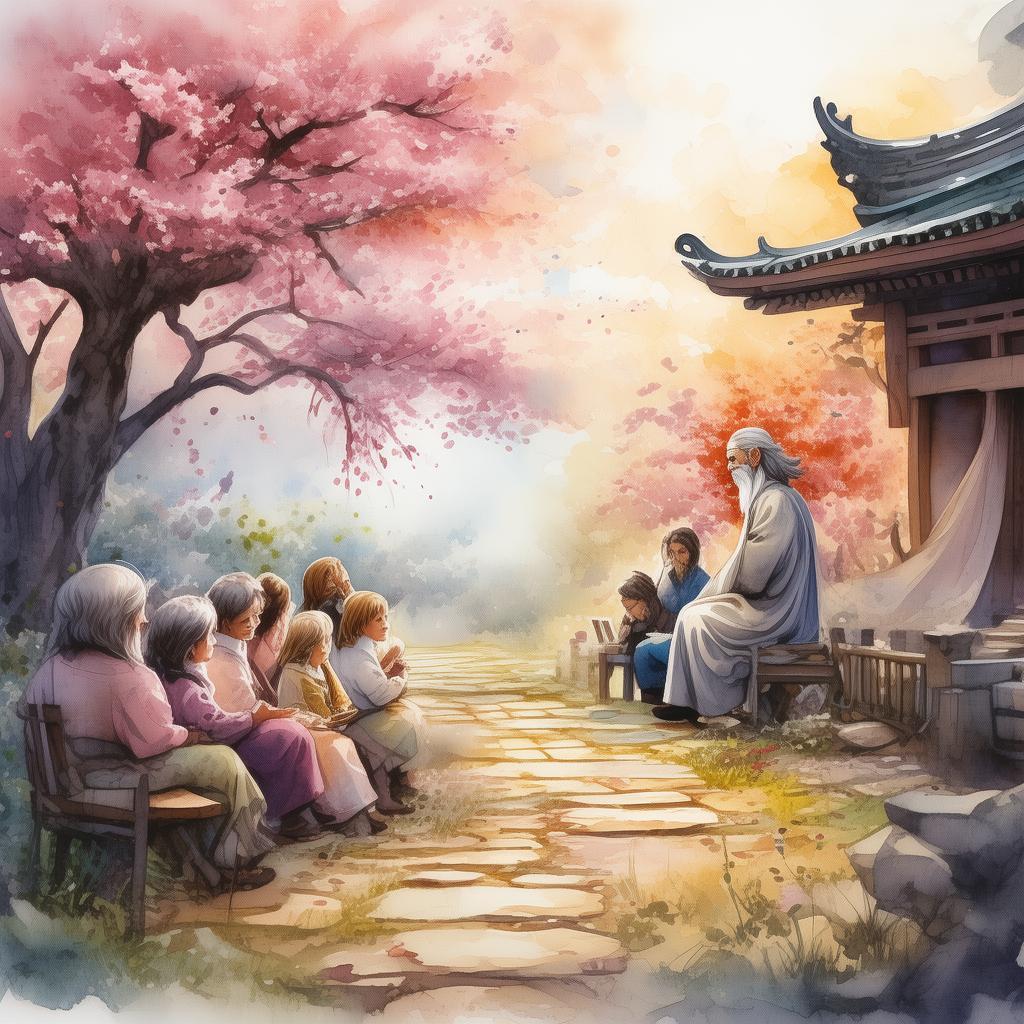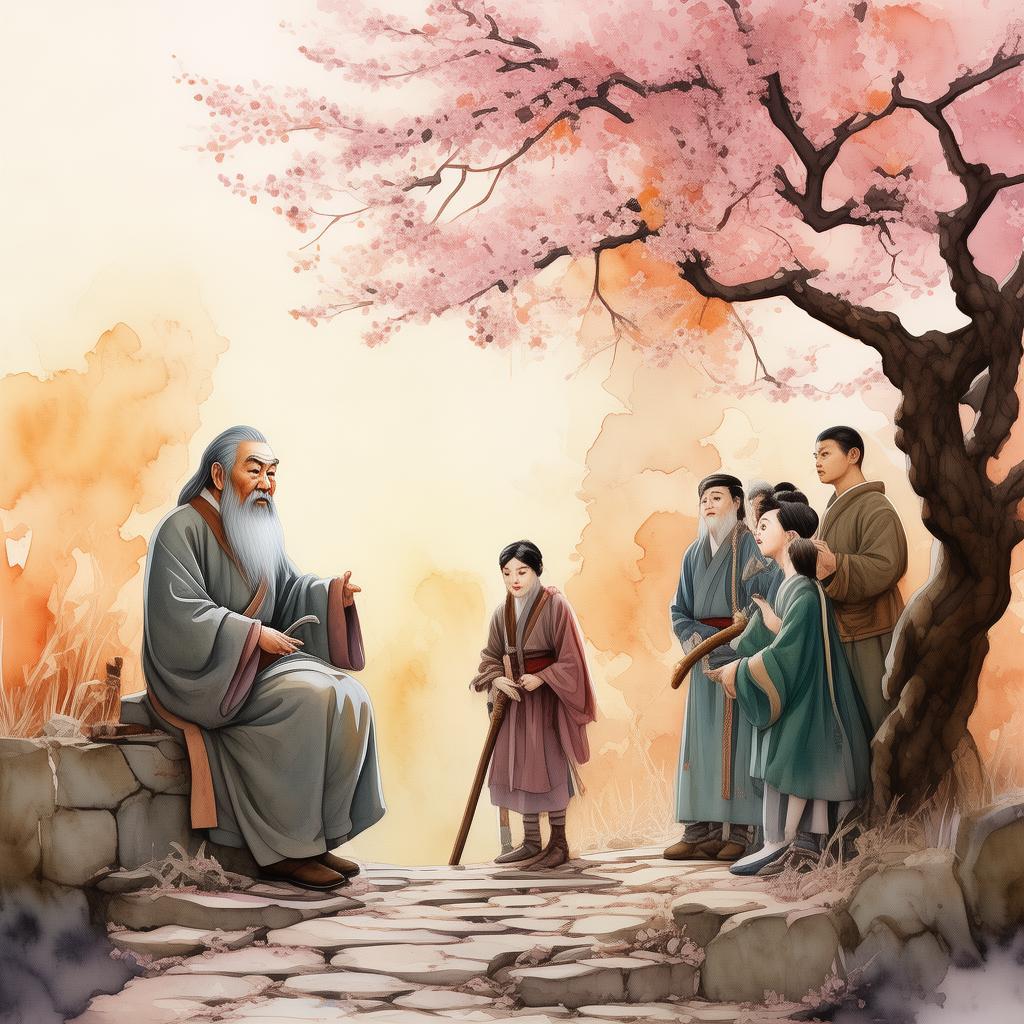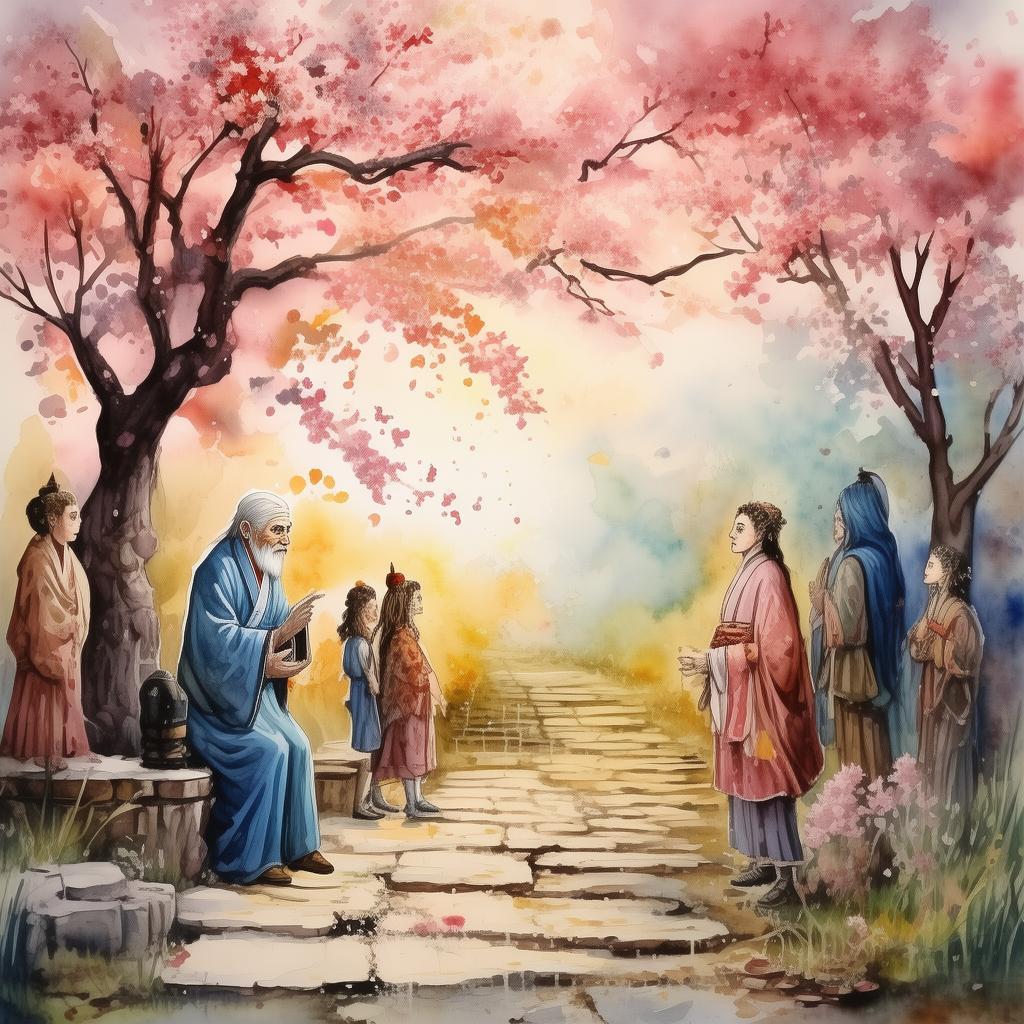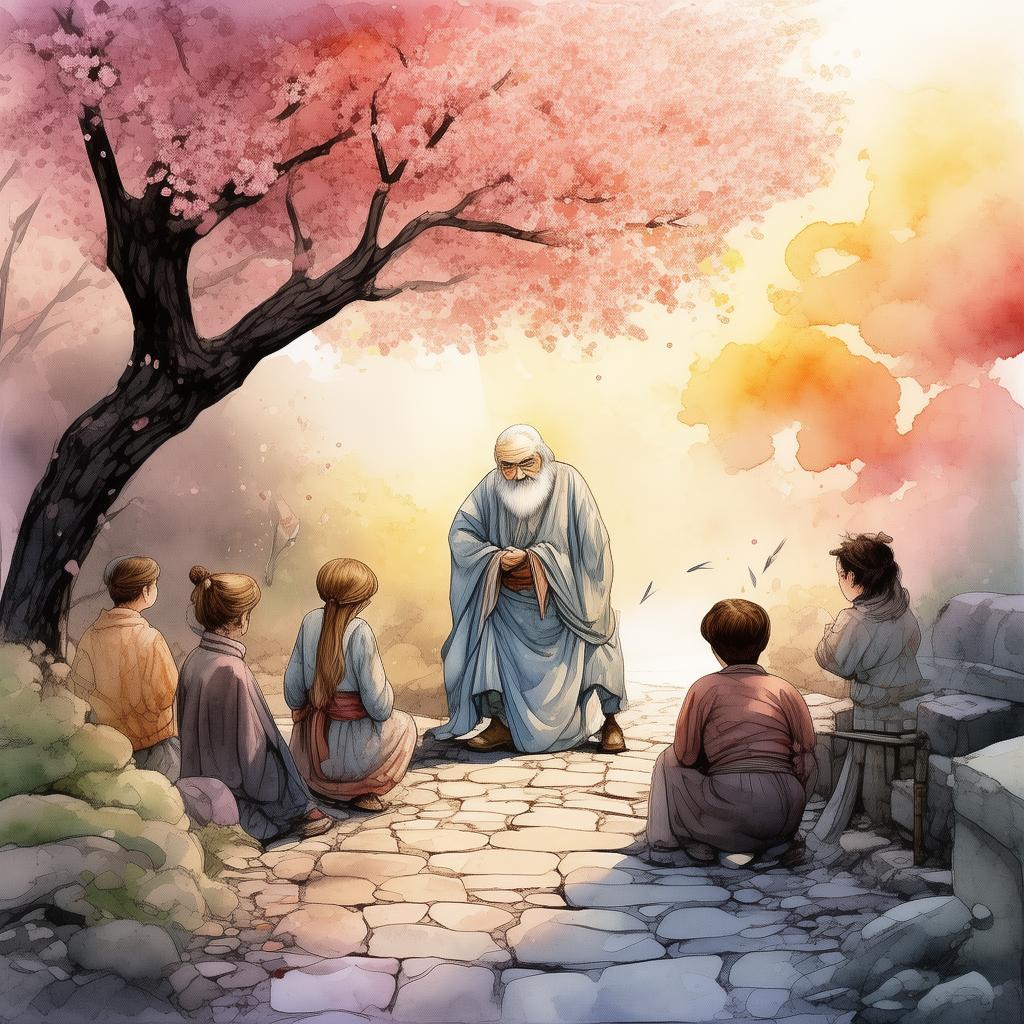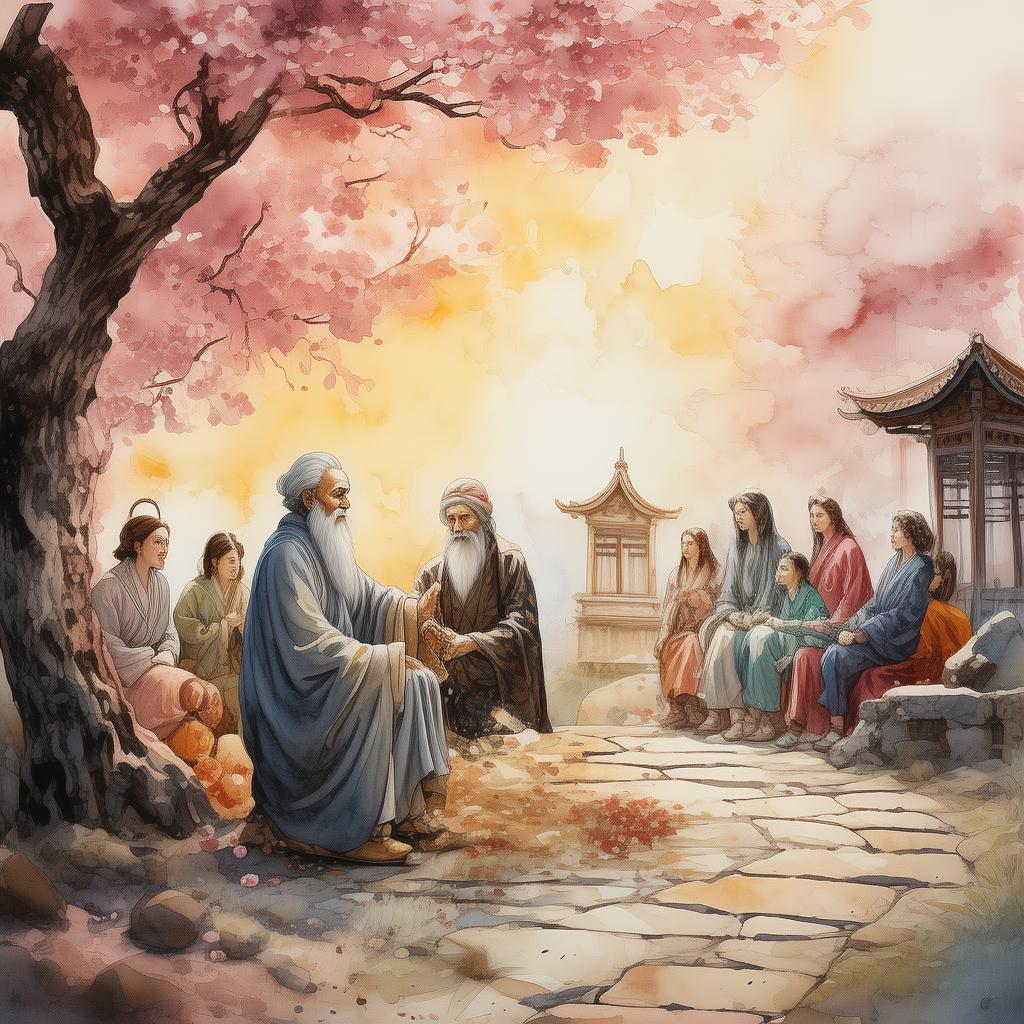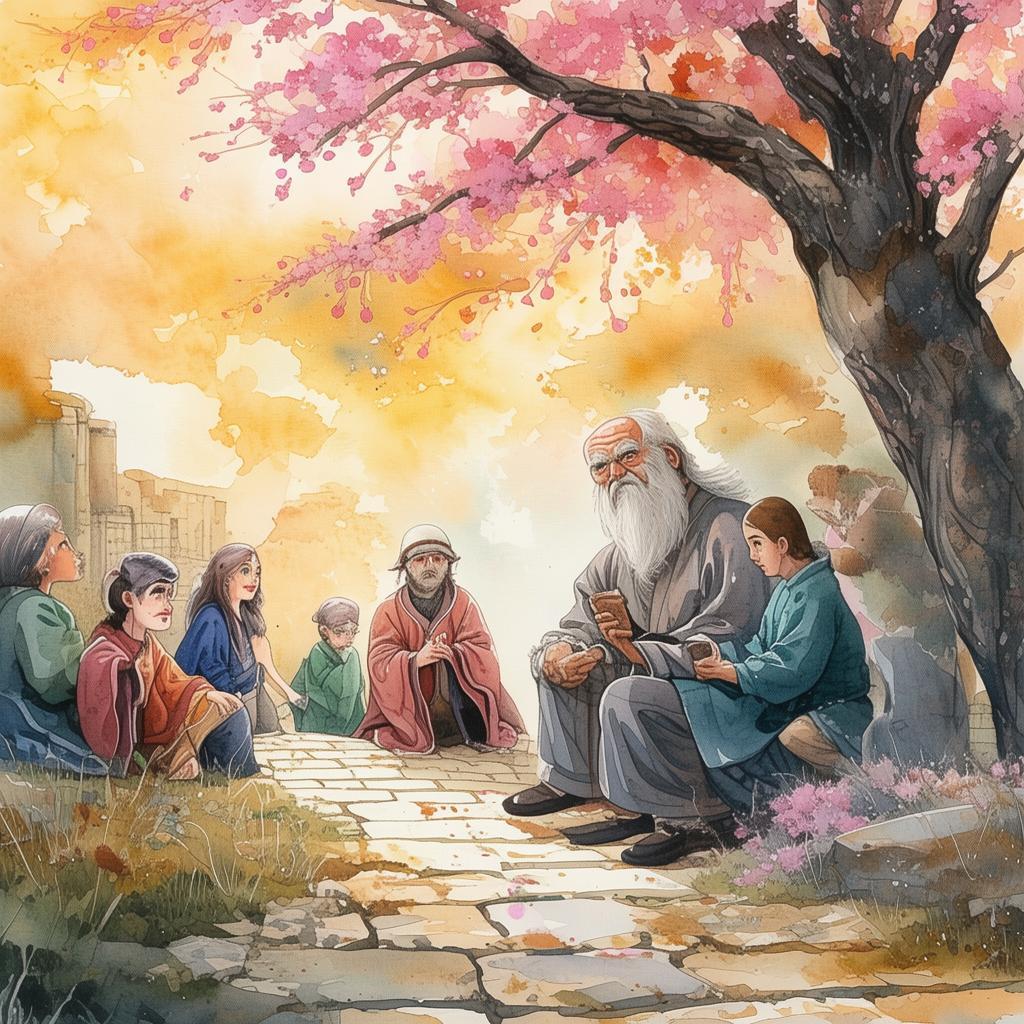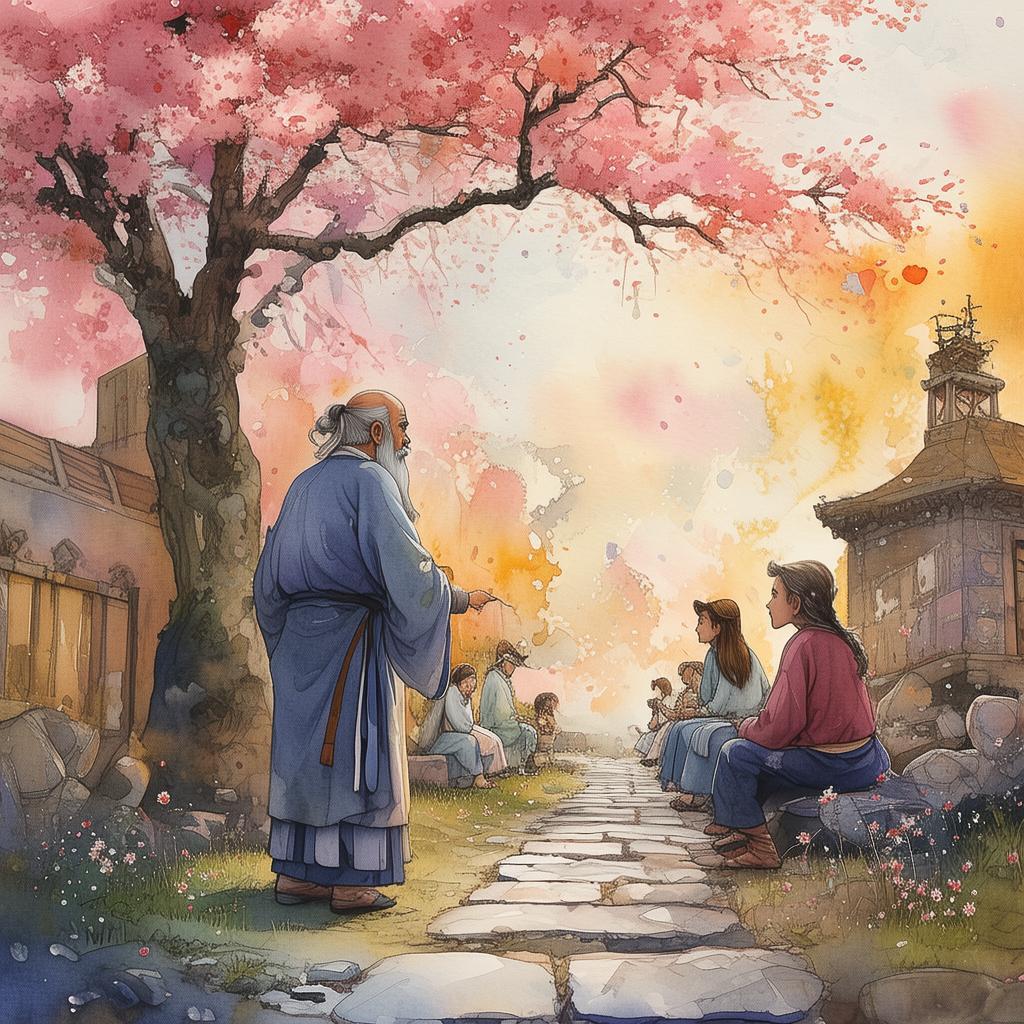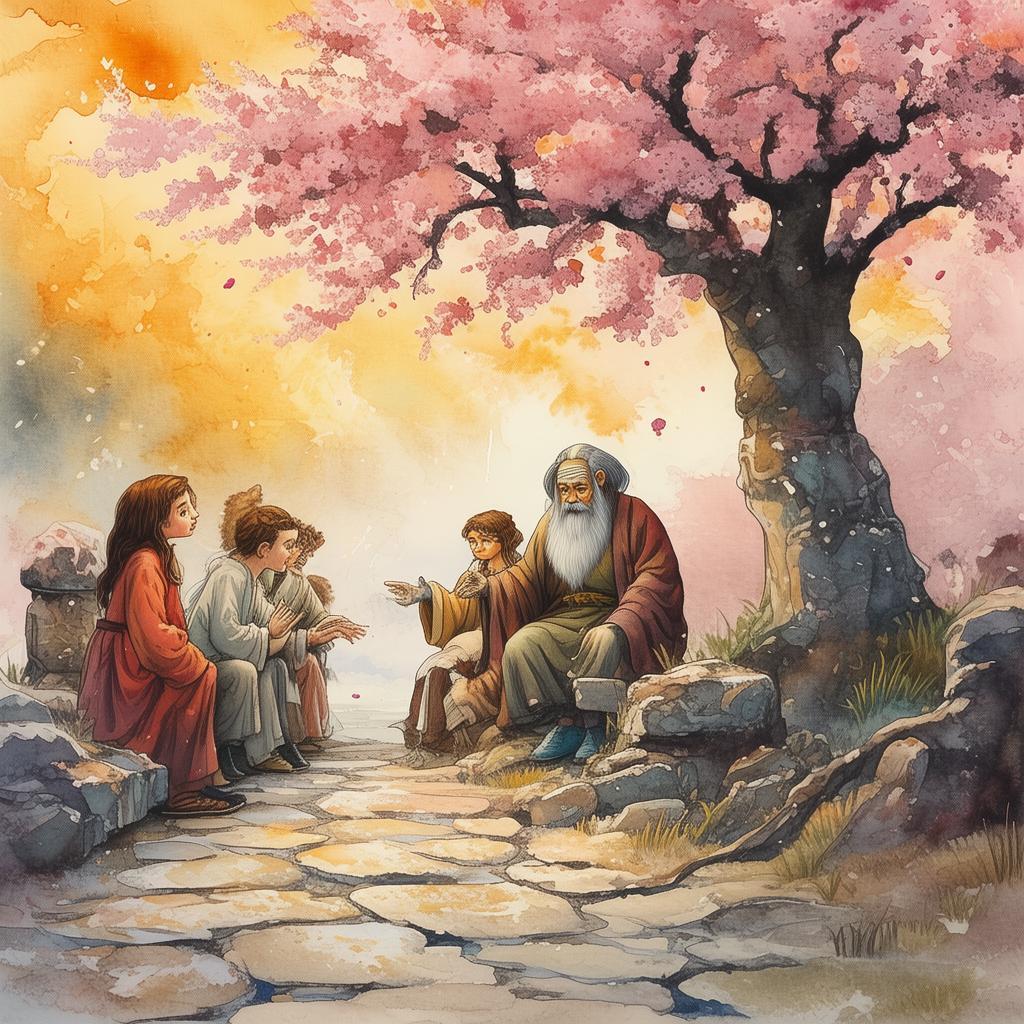Chasing the Revolution's Elixir: The Quest for Flavor and Freedom
In the heart of a bustling metropolis, where the air was thick with the scent of revolution and the promise of change, there lived a gourmet chef named Ming. Ming was not just any chef; he was a maestro of flavors, a connoisseur of the arcane arts of cuisine. His restaurant, known far and wide for its revolutionary dishes, was the beating heart of a culinary revolution.
The legend of the Elixir of Revolution was whispered in hushed tones among the culinary elite. It was said to be a potion, a concoction of rare and exotic ingredients, that could awaken the senses and stir the soul. But more than that, it was believed to hold the power to ignite the flames of revolution in the hearts of the people.
Ming had always been intrigued by the tale. He saw it as a challenge, a quest that would test his skills and his resolve. With the city on the brink of upheaval, he decided that it was time to chase the Elixir and perhaps, in doing so, to uncover the true meaning of revolution.
His journey began in the dimly lit alleys of the city, where the scent of spices mingled with the smell of sweat and determination. Ming visited the city's most clandestine markets, where the bravest of suppliers gathered to trade in forbidden goods. His nose twitched at the exotic aromas of star anise, saffron, and the rarest of herbs.
One evening, as the sun dipped below the horizon, casting a golden glow over the cityscape, Ming met an old woman who claimed to possess the secret ingredient to the Elixir. Her eyes, like two deep wells of wisdom, held stories untold.
"The Elixir of Revolution is not a potion, but a memory," she said, her voice a soft murmur that seemed to carry the weight of centuries. "It is the essence of the people's struggle, their dreams and their fears, all compressed into a single taste."
Ming was intrigued but skeptical. How could a memory be a taste? Yet, as he listened to the old woman's tales of resistance and resilience, he found himself drawn deeper into the quest.
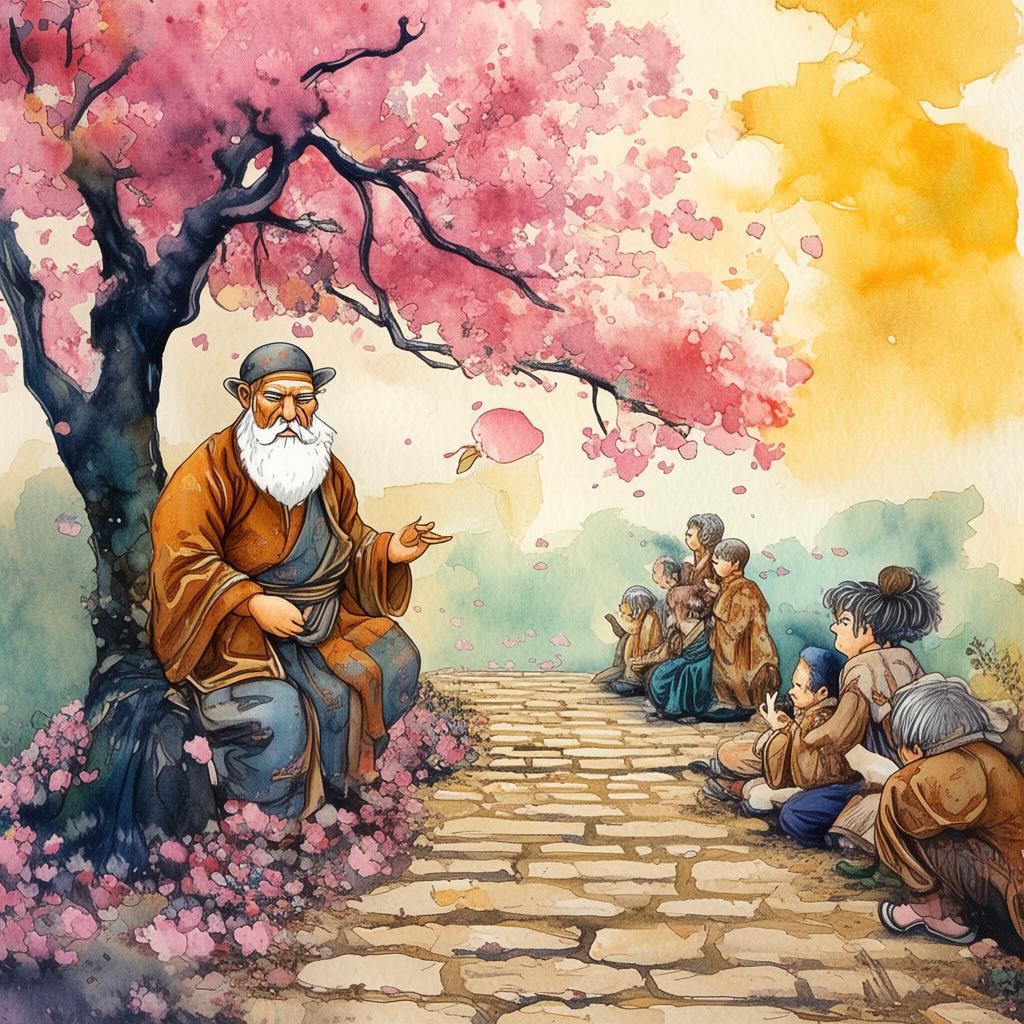
The old woman spoke of a hidden kitchen, a place where the Elixir was said to be brewed. It was a place where the brave and the bold came to cook and to dream, where the taste of revolution was born.
Ming's quest led him to the outskirts of the city, to a hidden valley where the air was crisp and the soil fertile. Here, amidst the whispering pines and the babbling brooks, he found the hidden kitchen. It was a humble place, but its walls were adorned with the faces of the revolution's heroes, their eyes alight with the same passion that Ming felt in his heart.
The old woman guided Ming through the kitchen, where the air was filled with the sounds of sizzling pans and the clinking of ceramic bowls. The ingredients were simple yet potent: garlic, onions, tomatoes, and basil, all grown in the valley's rich soil. The Elixir was not a potion to be brewed, but a dish to be prepared.
As Ming worked, the old woman spoke of the revolution's chefs, men and women who had used their culinary skills to inspire and to feed the hungry masses. They had cooked not just for sustenance, but for hope and for change.
Ming's hands moved with a practiced grace as he chopped and sautéed, the old woman's words a rhythm in his mind. The dish was simple, yet it was the essence of the Elixir, a taste of the revolution that was to come.
As the dish was set before him, the old woman nodded with satisfaction. "This is the Elixir of Revolution," she said. "It is not a potion, but a shared experience, a memory of struggle and hope."
Ming took a bite, and his world was transformed. The flavors were intense, the taste of revolution a powerful punch to the senses. It was not just a dish, but a moment, a snapshot of the revolution's soul.
In that moment, Ming realized that the Elixir was not a potion to be brewed, but a catalyst, a spark that could ignite the flames of revolution in the hearts of the people. He understood that the true power of the Elixir was in its ability to bring people together, to create a shared experience that transcended language and borders.
With the Elixir in his heart, Ming returned to the city, his journey complete. He prepared the dish for the first time in his restaurant, and the line snaked out the door. People came from far and wide to taste the Elixir, to share in the experience, to feel the revolution in their taste buds.
And so, the Elixir of Revolution became more than a legend, more than a dish. It became a symbol of hope and change, a reminder that even in the darkest of times, there is always light, and there is always flavor.
As the revolution unfolded, Ming's restaurant became a sanctuary, a place where people could gather and dream, where the Elixir's magic continued to work its wonders.
And Ming, the gourmet chef who had once sought the Elixir to satisfy his palate, found that the true elixir was the power of community, the strength of shared dreams, and the unyielding spirit of revolution.
✨ Original Statement ✨
All articles published on this website (including but not limited to text, images, videos, and other content) are original or authorized for reposting and are protected by relevant laws. Without the explicit written permission of this website, no individual or organization may copy, modify, repost, or use the content for commercial purposes.
If you need to quote or cooperate, please contact this site for authorization. We reserve the right to pursue legal responsibility for any unauthorized use.
Hereby declared.
